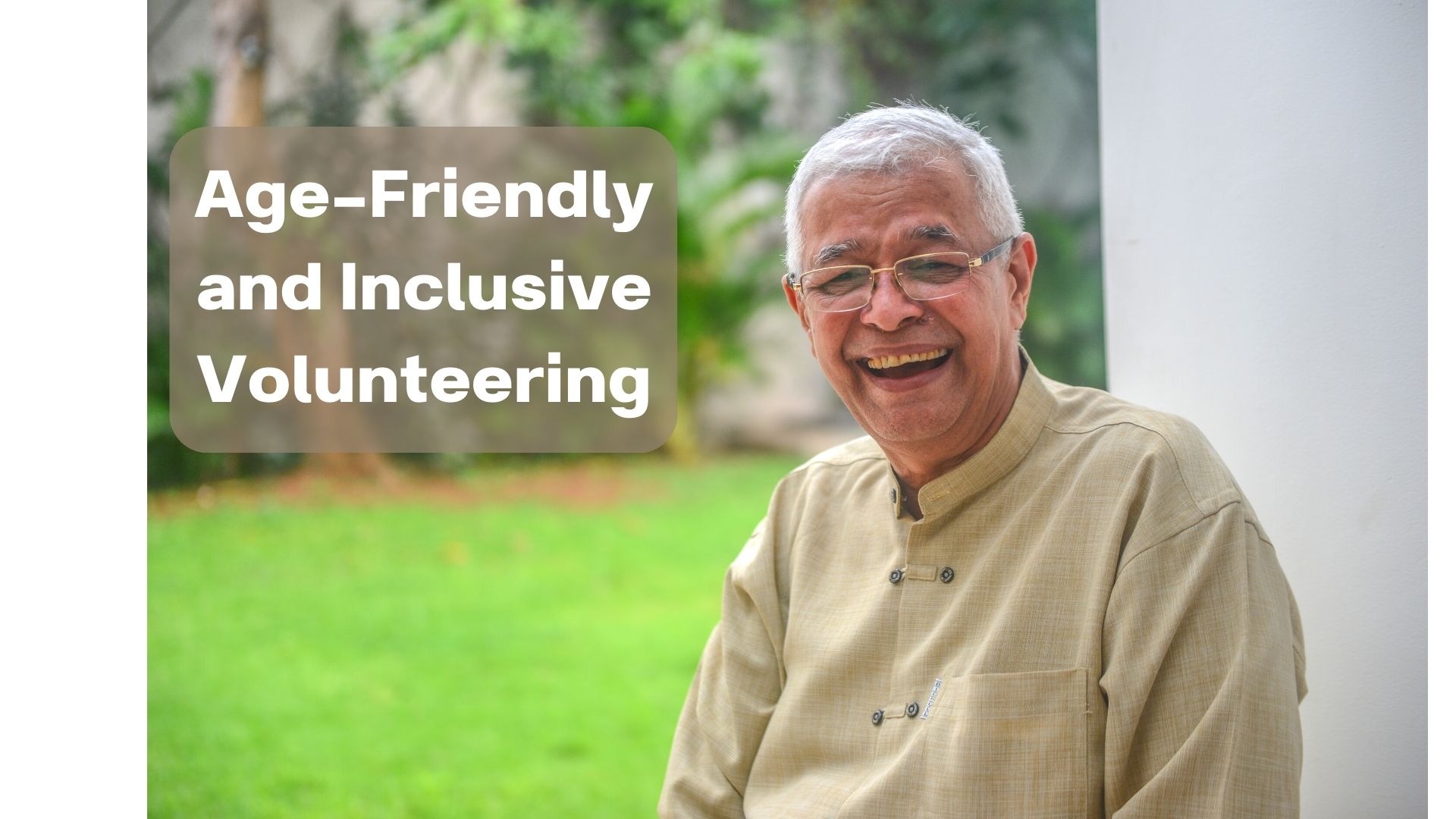

Almost everyone in later life makes a volunteer contribution of some kind or other. However, some people encounter barriers to getting involved in ways that work for them, especially as their circumstances change.
With people living longer, it is increasingly common for seniors to continue working or volunteering well past the traditional retirement age of 65.
I am 85 and an active volunteer. I feel very blessed to still be able to do this and retain my independence through the use of a walker. I have a determination to build on things I can do and not dwell on things I can’t. Volunteering is a wonderful opportunity to meet and make new friends and share our stories. After each visit, I leave refreshed and upbeat — you are never too old to volunteer, you are needed and valued! Don, Resident, Region of Durham
Organizations need to do and are doing the vital work necessary to engage a more diverse group of people in later life; they recognize the talents and treasures that a diversity of older people bring.
Many influential organizations, around the globe, are addressing issues to ensure that ageism is addressed and opportunities for volunteering and community contributions are age-friendly. You can find out about some of this work being done in the links below.
For instance, WHO (World Health Organization) is working together with key partners on a Global Campaign to Combat Ageism — an initiative supported by WHO’s 194 Member States (which includes Canada). The campaign aims to change the narrative around age and ageing and help create a world for all ages.
You can also do your own Internet search to find even more about all that is being done in Ontario, across Canada and around the world.
People who live with poverty and less healthy people, in later life, face barriers to contributing within formal organizations, as do racialized communities or BIPOC (Black, Indigenous, and People of Colour) people. Without action to attract and retain a more diverse pool of volunteers, organizations working with volunteers may find their capacity is depleted.
Thankfully there are vital, positive things being done with and for volunteer-involving organizations to rectify the age-friendly gap to allow for full participation of volunteers from all walks of life who wish to contribute in meaningful ways.
The Centre for Ageing Better, in partnership with the Department of Digital, Culture, Media and Sport, recently published a review of community contributions in later life, focusing on how to increase participation among under-represented groups.
The review identified three broad categories of barriers to volunteering and community contribution:
- Practical barriers: costs, transport needed, physical access, language
- Structural barriers: inflexible offers, lack of neutral spaces, lack of resources, bureaucracy, digital divide*
- Emotional barriers: lack of confidence, fear of overcommitment, stigma/stereotype, lack of welcome, not feeling valued.
Six principles, with older adult volunteers’ needs in mind, to making volunteering opportunities age-friendly and inclusive:
- Flexible and responsive — it fits around your life; when life changes, you can adjust your commitment without feeling you’ve let anyone down; you know how to get involved, what you’re being asked to do, and how to stop doing it.
- Enabled and supported — you receive practical help with access, volunteer-associated expenses and any training you want and need; you feel supported and know who you can turn to with any questions.
- Sociable and connected — you have opportunities to meet and spend time with others, including people from different backgrounds and age groups; you want to feel a part of something.
- Valued and appreciated — the value of your effort is recognized and people regularly let you know you’re valued; you fee like people appreciate what you do.
- Meaningful and purposeful — the volunteering you do means something to you; what you do is worthwhile.
- Makes good use of your strengths — allows you to use the skills and experiences you’ve built up during your life and gives you opportunities to try out and learn new things; you feel like your contributions are respected and valued.
Be sure to ask for the things that are important to you, when you meet with volunteer-involving organizations you wish to volunteer with or those you are actively volunteering with. If you think the organization you engage with doesn’t know about age-friendly and inclusive volunteering, feel free to share the links listed below.
The above comes from a few sources, and you can read a lot more through these links:
- Discussion Guide on Ageism in Canada found HERE.
- Ontario Human Rights Commission found HERE.
- Centre for Ageing Better found HERE.
- World Health Organization’s (WHO) Global Campaign to Combat Ageism found HERE.
- Global Campaign to Combat Ageism Toolkit found HERE.
- “City of Toronto Shines a Light on Anti-ageism in the Workplace” found HERE.
- Durham Challenges Ageism with Bold New Campaign found HERE.
For more on age-friendly and inclusive volunteering, please check out our article “Checklist of Essential Features of Age-friendly Cities” found HERE.
*Read our articles on addressing the digital divide and closing the technology gap HERE.


